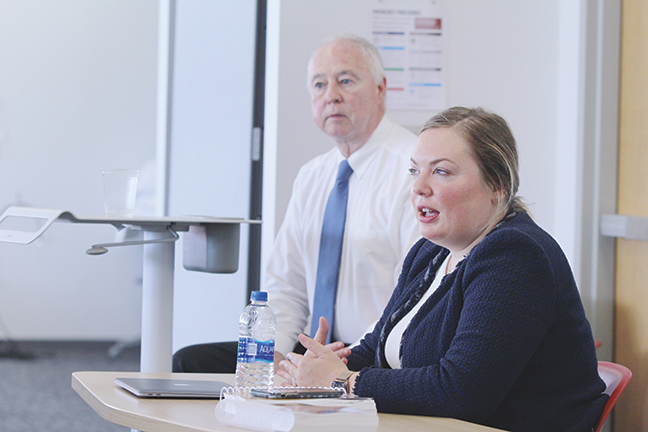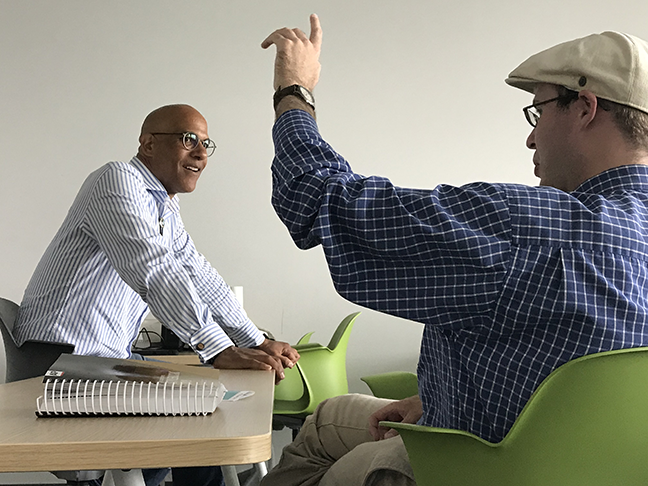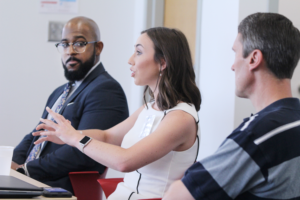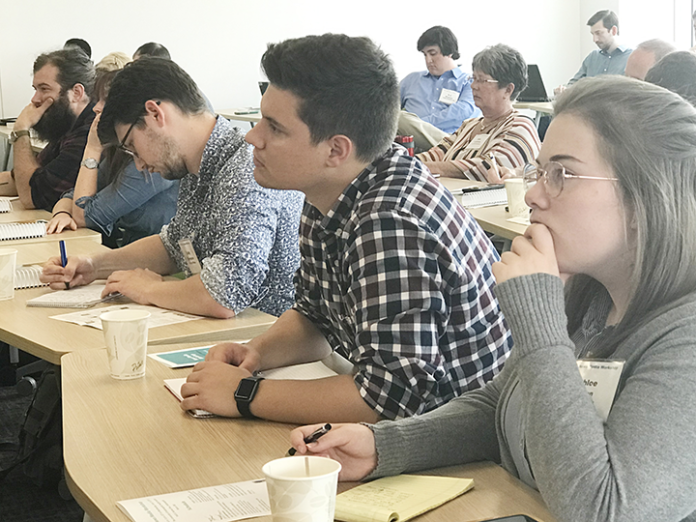
Tools and tips on storytelling across platforms was the focus of the 2019 News Media Workshop. Media professionals from around the state met at the University of Indianapolis on June 19 for the one-day event sponsored by HSPA, the Indiana Broadcasters Association and the Indiana Associated Press Media Editors.
The workshop was designed to offer a variety of practical information that people could take back and apply in their newsrooms.
Tori Fater, a breaking news reporter with the Evansville Courier & Press, said the session offered by Indiana Public Access Counselor Luke Britt and HSPA Executive Director Steve Key was especially helpful. “I think I

took three pages of notes,” Fater said.
The session addressed a perennial concern for reporters — rights and access to documents and public records.
“It’s important to remember government is meant to serve the people, not the other way around, and public records play a huge part in that,” Fater said. “I appreciated Mr. Britt speaking to that.”
This summer workshop takes the place of the fall newsroom seminar. Like the seminar, the goal is to provide training across disciplines.
“As a former reporter and editor, I always enjoy participating in the

workshop because it brings together journalists who are interested in improving their craft,” Key said
Keynote speaker Katie Rogers is a White House correspondent for the New York Times. She started her journalism career at The Elkhart Truth.
“I’m really thankful to be here in front of you guys. I started out as a local journalist and it’s in my heart,” Rogers told the crowd.
“I believe that you guys are the front lines in ensuring that our citizenry is engaged,” Rogers said. “I just think it’s so important.”
In the wide-ranging question and answer session, Rogers discussed social media, the use of anonymous sources, critiques of the press, fact-checking and the challenge of monitoring President Trump’s use of Twitter — an Apple Watch alerts her to every tweet.
George Myers, city and government reporter at the Kokomo Tribune, said it was interesting to hear about Rogers experience and how journalism works at that level.
He said his newsroom had a situation where they were denied body cam footage. So, Dan Byron’s session outlining the new laws was of particular interest. There was another instance recently where a suspect was beaten and arrested and the Tribune put in another body cam video request.
“We actually talked about what I learned from that discussion and what we had rights to,” Myers said.
A session on video storytelling re-emphasized for Myers how important it is for reporters to remember to pull out the cell phone and incorporate video in their coverage. And hearing about Christian Scheckler’s investigative series for the South Bend Tribune provided important information he could apply to his job, Myers said.
Rogers said she was impressed with the journalism being done by people at the workshop and told attendees that their job is important now more than ever.
“I hope you’ll leave this conference energized to go out and find those stories that are not told,” she said.




